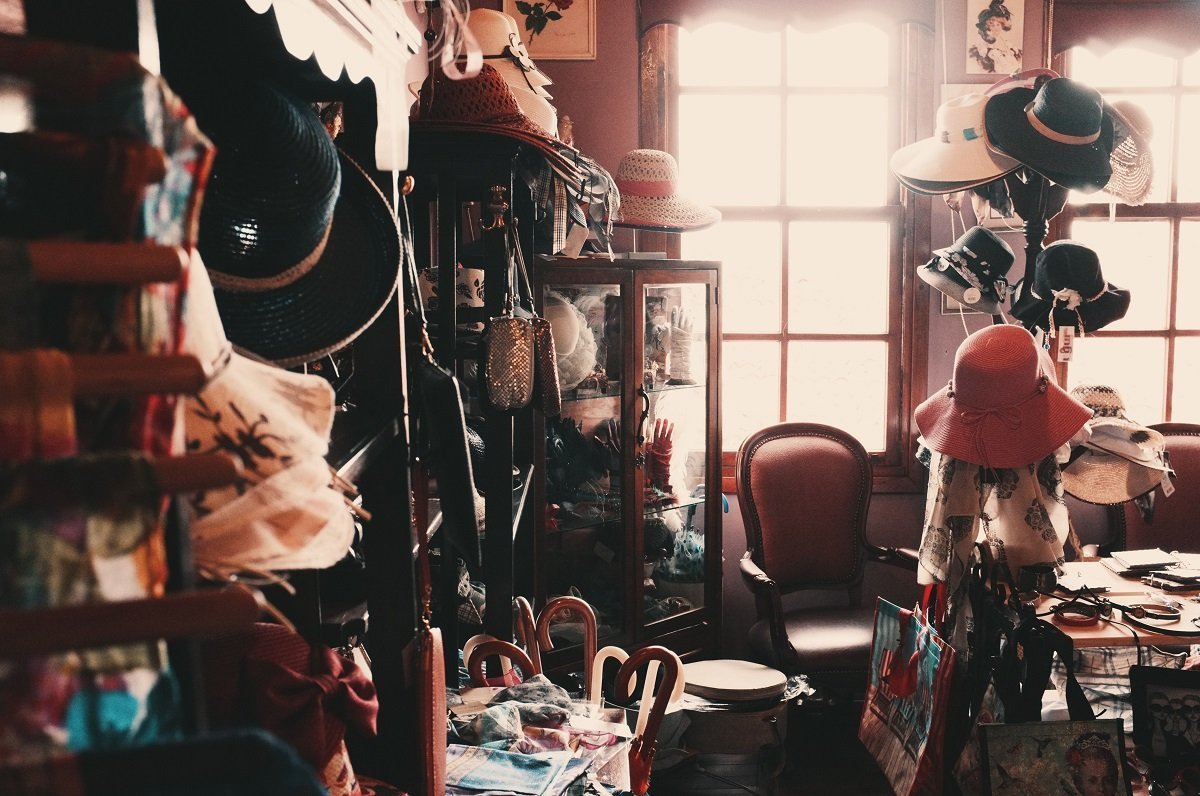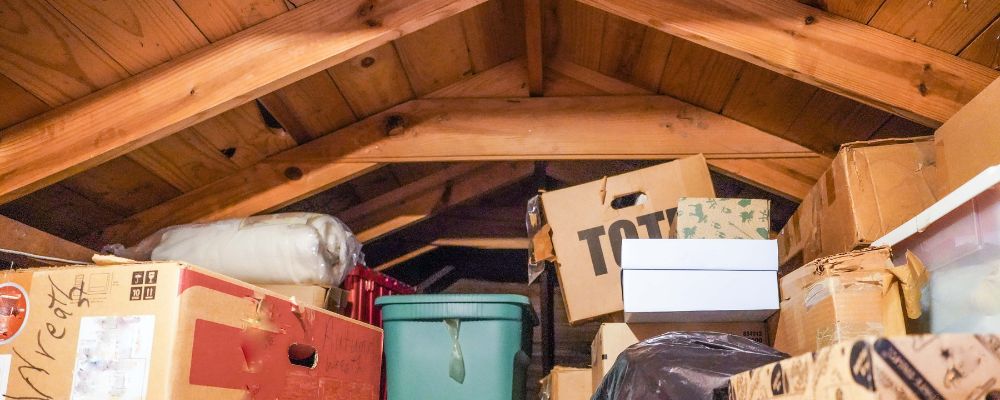How Does Self Storage Work?
Table of Contents
- How Does Self Storage Work?
- What is a self-storage facility?
- Who uses self storage?
- What are the different types of self-storage units?
- How safe are self-storage units?
- How much is a self-storage unit?
- Are self-storage units worth it?
- How to rent a storage unit
- How do you choose the right storage facility?
- Where can I find self-storage units near me?
- Ready To Start Your Nesta Storage Journey?
If you are considering renting a self-storage unit but you have some hesitations, you’ve come to the right place.
We’ve compiled the internet’s most frequently asked questions about self-storage facilities and we’re here to unbox the answers.
What is a self-storage facility?
A self-storage unit is a space rented to both individuals and businesses. These are people who may need to keep something but do not have adequate space in their property to do so.
Renters or tenants can rent different sizes of units according to their needs and they can also lease these facilities for short or long periods of time.
Why should you use a self-storage unit?
You should rent a storage unit if you have items that no longer fit in your home but you don’t want to throw or give them away. Renting a self-storage space may also be better than leaving your things with a friend because:
- There is increased security for all your items
- Having a unit offers you more freedom (no need to call your friends or bother them!)
- You can indicate the time frame of your rent
- Most facilities provide insurance for your items as an additional service
- Some facilities also offer routine cleaning or upkeeping of units
What can you store in a self-storage unit?
You can store all types of things in a storage facility! Pieces of furniture, clothes, books, and more. There are also special types of storage units that can store bottles of alcohol or other forms of collectibles. Shed-type of units allow some owners to store vehicles like cars or bikes.
What can you not store in a self-storage unit?
It is not advisable to store anything perishable such as food and medicine. Living things such as plants or pets should also not be left inside storage units as well.
To avoid accidents, flammable and toxic materials like gasoline, kerosene, motor oil, and fertilizers are not allowed in storage units.
Is it illegal to live in a storage unit?
We don’t think it would be comfortable if you try to live in a storage unit. In some countries, it is illegal to do so because there are designated residential areas. Sadly, self-storage facilities don’t fall into that category.
Another question connected to this is: Can police search your storage unit? The answer is yes if they have a warrant and probable cause to search your unit in aid of an investigation. Check your local legislation on the specifics or the conditions that would allow authorities to search your unit.
Who uses self storage?
Self-storage facilities are growing in popularity, especially in countries where rent is high and people are highly mobile. People who use self-storage facilities are usually:
- Movers who are staging their house or in between houses
- Families renovating their homes and don’t have anywhere to store their belongings
- Collectors who need a special place to store their items
- Business owners who need a place to store inventory or archives
- Vacationers who are renting out their apartment or house
- People who are moving to a smaller unit or apartment
What are your rights as a storage owner?
As an owner of a unit at a self-storage facility, you do have rights that are dependent on your license agreement with the storage provider and the laws of the city where it is located. For example, not all storage facilities offer insurance but most of them do it as an add-on service. Of course, the most basic right to privacy and protection of your personal belongings is a given.
Here are several things you must consider when reviewing your license agreement with the storage provider:
- How many days do I have to give notice when I have to move my belongings?
- What is the coverage of the insurance policy? And additionally, what kind of compensation do I receive when something happens to my items?
- What are the security features of the facility?
- What happens to my belongings when I fail to pay on time and I cannot physically claim them? (Do they have a holding period?)
What are the different types of self-storage units?
Storage units differ in terms of size, license agreement, and purpose.
- Outdoor storage: As the name suggests, these are units located outdoors and are used to store cars, bikes, tractors, boats, etc. These facilities are usually not climate-controlled.
- Drive-up storage: These storage units look like garage areas and. Users can easily drive up next to the entrance of their unit, roll up the door like a normal garage, and drop off their items.
- Indoor storage: Sometimes, these are climate-controlled facilities located inside a building.
- Commercial storage: These are units where you can store business files, inventory, or other operational equipment.
- Specialised storage: Some facilities cater to specific objects such as wine or collectables.
How safe are self-storage units?
Self-storage spaces are safer compared to leaving precious things in your house or another friend’s house while you’re away. Here are the most common safety features of self-storage units:
- 24/7 security
- Password-protected units
- CCTV coverage of units and the whole facility itself
- Restricted access
- Climate or temperature control (for some facilities)
What facilities are available in storage units?
Storage unit providers have varied amenities in their respective facilities. Most storage facilities provide locks for the units, moving apparatus, as well as other security tools.
Some storage places like Nesta also provide moving trolleys, lifts, and even a canteen so you can have a cup of tea in between moving your boxes.
How much is a self-storage unit?
Now, for the question on everyone’s mind – what is the cost of self storage? To know how much self-storage units cost, we must consider a few factors:
- Where the facility is located
- Where your unit is located inside the facility itself
- How much space do you need
- How long do you need it
- What kind of features or add-ons do you want your unit to have
How much do storage units cost per month? Per week?
According to GetMover’s survey, these are the average monthly and weekly rental prices of storage units in Ireland:
| Storage size | Monthly rental fee, exclusive of VAT | Weekly rental fee, exclusive of VAT |
| 25 SQ FT | €140 | €35 |
| 50 SQ FT | €280 | €70 |
| 80 SQ FT | €380 | €95 |
| 100 SQ FT | €440 | €110 |
| 160 SQ FT | €600 | €150 |
| 320 SQ FT | €720 | €180 |
Are self-storage units worth it?
This depends on how you plan to utilise and maximise the use of your storage. And this starts with knowing the correct size of storage you need. Some people may get a bigger space than what they need and this is something you want to avoid. Remember, unused space equals wasted money.
Were wondering how many cardboard boxes can fit in a 5×5 or 10×10 storage unit? Or do you want to know if a car can fit in a 10×10? You may use this table as a guide:
| Dimensions | Boxes it can fill | No. of rooms |
| 3 feet by 3 feet | 2 large, 2 medium or 5 small boxes | Very small room or ½ studio room |
| 5 feet by 5 feet | 84 small or 45 medium or 27 large boxes | Studio or one-bedroom apartment |
| 5 feet by 7 feet | 140 small or 60 medium or 36 large boxes | A large one-bedroom apartment |
| 5 feet by 10 feet | 189 small or 90 medium or 54 large boxes | Two-bedroom apartment |
| 7.5 feet by 10 feet | 273 small or 135 medium or 81 large boxes | Two-bedroom house |
| 10 feet by 10 feet | 378 small or 180 medium or 108 large boxes | Three-bedroom house |
| 10 feet by 15 feet | 546 small or 270 medium or 162 large boxes | A large three-bedroom house or a small four-bedroom house |
| 15 feet by 20 feet | 1092 small or 540 medium or 324 large boxes | Four to five-bedroom house |
How to rent a storage unit
Renting a storage unit is as easy as ordering coffee from your favorite cafe. It may seem like there are a lot of decisions to be made but it really boils down to this:
Step 1: Choose the size of the unit you need
How many rooms or cardboard boxes do you need to store your items? You may refer to the table we provided above to estimate how big your storage room should be.
Step 2: Evaluate if you need storage for the short or long term
Read our guide about long-term storage if you’re unsure whether to rent units temporarily or for a longer period of time.
Step 3: Consider add-ons or extra services
Facilities like Nesta allow you to add something extra to your storage plan. These may be packing boxes or shelves for your unit. Other facilities also provide routine cleaning services.
How do you choose the right storage facility?
Before renting a storage unit, make sure to do some research. Make sure to ask these questions:
- How long have they been operating in the market?
- What are the terms of their license agreement or lease?
- What kind of facility do they have?
- What are their security features?
- Do you need a space with climate controls?
- What are you storing?
- How often do you need to check up on your things?
- Do they offer extra services such as van rentals or packing materials?
Where can I find self-storage units near me?
If you are looking for self-storage near Churchtown, Sandyford, Deansgrange, Kylemore, Santry or Kilbarrack then Nesta is your best bet. Request a quote today for your storage solution needs!
Table of Contents
- How Does Self Storage Work?
- What is a self-storage facility?
- Who uses self storage?
- What are the different types of self-storage units?
- How safe are self-storage units?
- How much is a self-storage unit?
- Are self-storage units worth it?
- How to rent a storage unit
- How do you choose the right storage facility?
- Where can I find self-storage units near me?
- Ready To Start Your Nesta Storage Journey?
Related Posts
- February 13, 2025|1 min read






